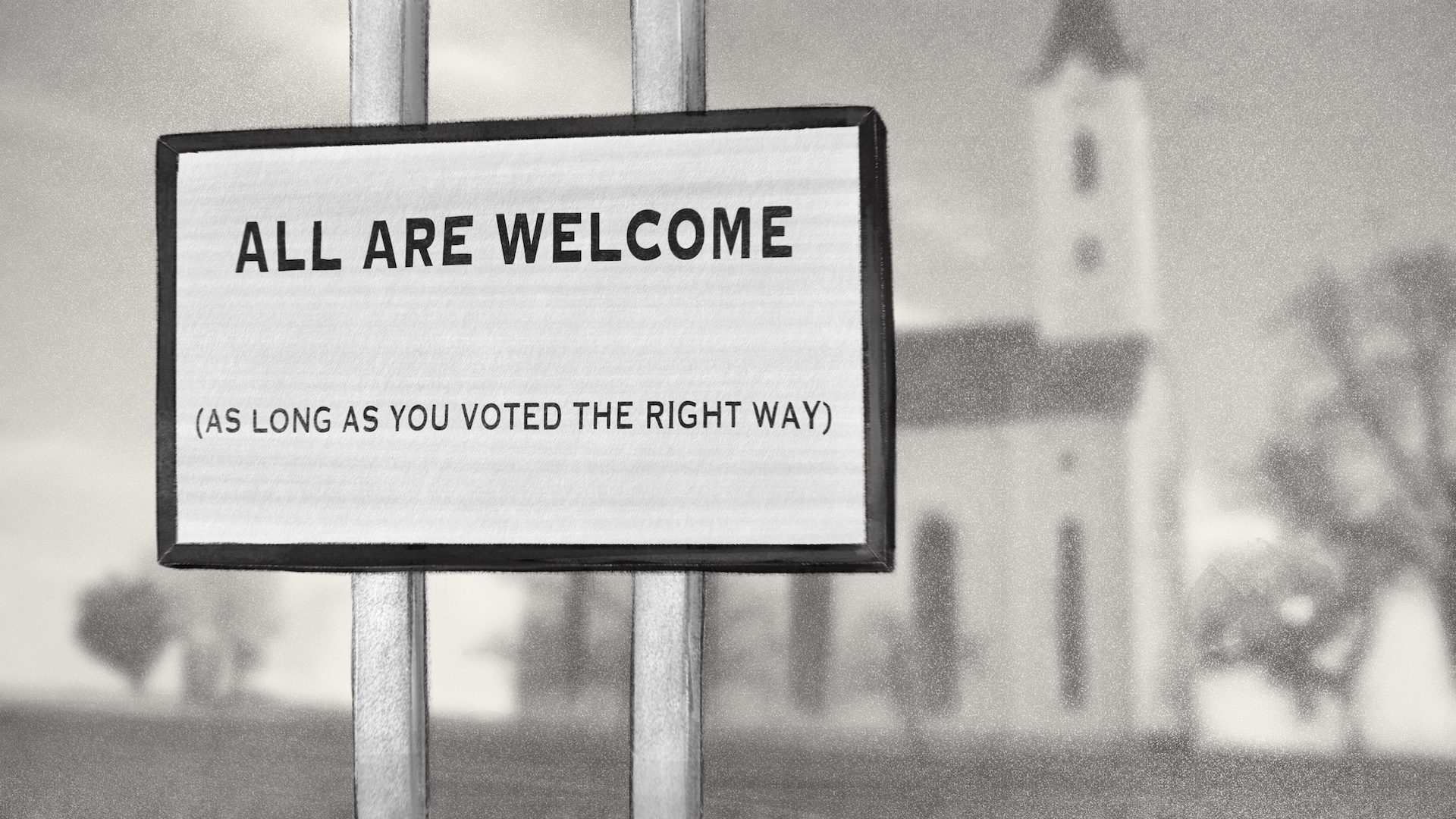Election seasons are always emotionally exhausting, but this political year has been especially concerning from a pastoral perspective. On both ends of the spectrum I’ve witnessed Christians propagating political views more passionately than they preach the gospel. I’ve seen a troubling trend toward elevating the ballot booth to a sort of baptism—a religious litmus test that either confirms or denies our faith.
There may not be a more vicious legalism today. In Galatians 1:8, Paul warns that only one gospel can save; anyone who preaches another is accursed. While Christian political activism and electoral urgency are in many respects warranted, we must remember that we are saved by faith alone, not the right political votes.
Even as we ought to be engaged and active as Christians, processing politics in light of the kingdom of God, we should be on guard against partisan heresy that replaces or reinterprets God’s agenda in light of contemporary politics.
Here are a few principles that can help guard against this danger.
You’re Likely Not an Expert
Most of us have limited time to dive deep into political issues and sufficiently trace their histories and complexities. We’re not political scientists or economists; many cannot articulate key differences between Karl Marx and Thomas Sowell. Certainly it’s wise to brush up as much as you can, with as much time as you can allocate. An ignorant Christian is a misled Christian, and technological access leaves us with little excuse to not be at least somewhat informed on important issues.
But our understandable limitations of expertise on all the dynamics at play should lead us to humility. Rather than a posture of overconfidence in sharing our political opinions, what if we had a posture of humility and teachability, being willing to listen and learn as much as we opine? Instead of aggressively pouncing on ideas we dislike (“You’re wrong!”), what if we began by asking questions in order to more productively dialogue with an opposing point (“That’s interesting. How did you come to that view?”).
No Candidate Is Perfect
This is not breaking news; it’s been the case in every election in human history. But the explosion of technology and information today—which makes concealing character flaws impossible—has underscored the inescapable “lesser of two evils” nature of most voting decisions.
All human leaders are fallen sinners, rebels against a holy God. This should prevent us from ever construing them as messianic figures with salvific power. They need Jesus as much as we do. Thus, our loyalty to Jesus and declaration of support of him should far exceed that of any political candidate. Jesus is the only figure who will never let us down. He’s the only one who can fulfill our hopes. This is a fundamental reason the ballot booth is not baptism. No voting choice carries salvific potency. Salvation is a blood test, not a mail-in vote.
No voting choice carries salvific potency. Salvation is a blood test, not a mail-in vote.
In any given election we can support a candidate because we think their policies are more in line with kingdom priorities. But we should never confuse a candidate with the King—he should command our allegiance and evangelistic “campaigning” far more than any flawed human leader does.
Neither Party Is Christian
Neither of the two major U.S. political parties is explicitly Christian. Yes, we can find kingdom values in both platforms. But we would be foolish to think either party is ultimately concerned with ushering in the kingdom of God and submitting to biblical ethics.
Christians, let’s avoid becoming functional syncretists. The blood of a donkey or an elephant cannot be mixed with the blood of the lamb. To mix them is to create an unholy concoction no believer should consume.
We are called to be Christ’s ambassadors, not partisan puppets; prophetic witnesses, not political pawns.
Politicians Don’t Always Keep Promises
Politicians make promises they often fail to keep. Like most false gods in our lives, they overpromise and underdeliver. Only God’s promises are kept; man’s promises often crumble.
Every vote, then, is in part a bet and a hope that a candidate will follow through on their promises. Nevertheless, Christians should be clear that our hope is not ultimately in any political candidate, party, or nation (all of which are fleeting in the scheme of eternity), but in the sovereign, everlasting God who is the architect and builder of a city with foundations (Heb. 11:10).
Diversity Is a Strength
Political diversity among Christians is not new. Actually, in the light of church history and in the context of global Christianity, what we see in America is quite mild. We need to check ourselves here. Any claim that true Christians must vote a certain way or align with a particular temporal, human political program downplays the complexity and diversity of how faithful Christians have engaged politics in other times and places.
Political diversity among Christians is not new. Actually, in the light of church history and in the context of global Christianity, what we see in America is quite mild.
From Moses to Jesus, the kingdom has always had both political zealots and tax collectors, all stumbling together to follow God. For good reason, God has enough grace to allow all repenting sinners to enter. Our diversity of opinion actually shows off God’s refusal to be pigeonholed or co-opted by any one party or nation.
Before You Vote
In addition to the reminders above, spend time in prayer as you approach this election. Ask God to give you wisdom and love for him. Pray that your vote would exemplify love for neighbor. Make a list of biblical priorities and compare them with the candidates and political platforms. Initiate civil discussions with Christians who disagree with you, and end with a time of prayer.
Then cast a ballot with joy and gratitude that your salvation is secure, Christ’s supremacy is true, and his victory is assured, whatever the election’s outcome.
